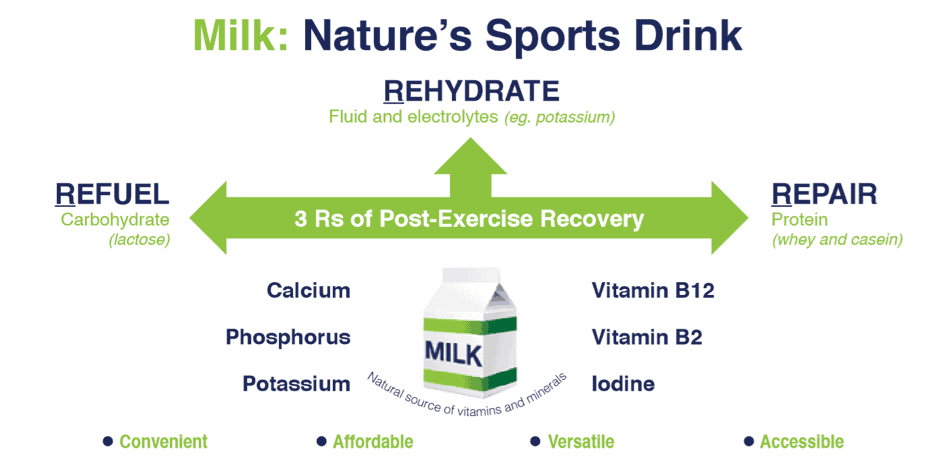
Irish Cheddar Cheese Toastie with Homemade Tomato Soup
There’s no better comfort food than an ooey-gooey cheesy toastie. Whether you’re whipping up a quick lunch or late night snack, you can rely on

There’s no better comfort food than an ooey-gooey cheesy toastie. Whether you’re whipping up a quick lunch or late night snack, you can rely on

Lorem ipsum dolor sit amet, consectetur adipiscing elit. Cras porta lorem cras justo, sed justo, ut eu. Arcu.
Check out OUR Latest FAVOURITE Recipe
“Eating well is essential and adapting your nutritional intake to your sport is a necessity.”
Rob Kearney — International rugby player
Effective recovery from an intense exercise session is essential for boosting your body’s adaption to training. Recovering well helps you to perform at your best in the next training session, match or competition. It is particularly important when training sessions are in close succession, such as an evening session followed by another bout the next morning. When it comes to the role of nutrition in exercise recovery, timing and the composition of what you eat are key. Inadequate recovery can lead to fatigue, reduced performance capacity and increased muscle soreness. There are three main priorities to consider for proactive recovery following exercise, often referred to as the 3 ‘R’s of recovery: Rehydrate, Refuel and Repair.
Sweating is a natural reaction during exercise to prevent the body from overheating, but it does mean we lose fluid and salts (electrolytes) that need to be replaced. Being even slightly dehydrated (as little as 2 % body weight lost as sweat) can negatively impact aspects of performance such as decision-making, concentration and reaction times. Sweat rates vary from person to person, so it can be useful to develop a personalised fluid strategy based on training sessions. Hydrating after exercise is essential for our recovery but being well hydrated before a workout can also help to make our rehydration strategy most effective. Measuring your body weight before exercise, when adequately hydrated and then again post exercise, can help to determine how much fluid has been lost through sweat.
Some general tips include:
As we lose electrolytes (sodium, potassium and chloride) as ‘body salts’ when we sweat, these need to be replaced by consuming foods or fluids containing electrolytes. For example, include a pinch of table salt (sodium chloride) to season your recovery meal; or choose milk which naturally contains potassium.
Refuel
Exercise demands energy and the main fuel burned and depleted during exercise is carbohydrate. The carbohydrate that is burned comes from your muscles and liver (in the form of glycogen) and your blood (in the form of the blood sugar, glucose). Unlike our fat stores, carbohydrate stores in the body are much more limited and depletion of glycogen stores during prolonged exercise is closely linked to fatigue. Therefore, during prolonged bouts of exercise, such as cycling for more than two hours, carbohydrate consumption can help to delay fatigue through maintaining blood glucose levels. Sports drinks or gels are often used as a convenient method in these cases.
For most sports people, carbohydrate refuelling should begin shortly after exercise and is faster during the first few hours. Complete muscle glycogen replenishment can take about 24 hours. Aim to eat carbohydrate-based foods with some protein within 30-60 minutes after exercise to begin refuelling energy stores and assisting muscle repair. Follow up with a substantial meal based on carbohydrate foods such as bread, pasta, rice or potatoes; paired with lean protein sources such as meat, fish or poultry; and include a variety of vegetables to contribute to vitamin and mineral intakes. A carbohydrate intake of 1.2g /kg/hour is generally recommended.
Milk is a popular drink in the recovery window following exercise due to its unique composition. Due to their higher carbohydrate content, some athletes opt for flavoured milks, such as chocolate milk. It has a similar nutrition profile compared to low-fat milk in terms of fat, protein, vitamins and minerals but offers an additional 7 g per 100 ml of carbohydrate due to added sugars.
Muscle protein breakdown is a natural response to intense or prolonged physical activity and most people at some stage, will have experienced sore muscles in the days following a tough exercise session. This delayed-onset muscle soreness results from small tears to muscle fibres. Exercise therefore acts as a stimulus for building stronger muscles as the muscle groups need to repair and adapt to meet repeated performance demands.
Muscle damage can lead to reduced power and loss of strength so adequate muscle repair is an essential part of the recovery process. Short term muscle recovery helps to prevent injury and ensure that performance capacity has returned before the next session. Long term training adaption refers to the recovery process which leads to enhanced performance from improvements in the muscular and cardiovascular systems.
When people talk about muscle recovery nutrition, many topics get attention, including antioxidants, tart cherry juice, foam rolling and novel recovery shakes. While the research is building in these areas, protein is still the key ingredient for recovery as it provides amino acids which assist muscle growth and maintenance. Amino acids are the components of protein which form the building blocks of new body proteins, such as muscle tissue.
Timing and quality are important when it comes to protein and the optimal approach is to spread intakes across the day rather than consuming a large amount at one meal. This enables the body to supply a constant amount needed by active muscles throughout the day. Consuming protein (approximately 20-25 g) following an intense session is particularly useful to assist muscle growth and repair. Protein requirements are estimated based on individual body weight; with slight variations depending on the type and intensity of activity. General ranges for daily protein requirements per kilogram of body weight are provided below:
| Group | Protein Intake (g/kg/day) |
|---|---|
| Inactive men and women | 0.8-1.0 |
| Moderate-intensity, endurance and team sports | 1.2-1.7 |
| Average | 18-24% |
| Strength, power and resistance | 1.2-2.0 |
Source: Adapted from the Australian Institute of Sport
Foods such as lean meat, fish, eggs, milk, cheese and yogurt are among the best protein providers as these are ‘complete’ protein sources – providing all of the amino acids (building blocks of protein) that the body needs. Other protein sources include beans, lentils, nuts and seeds. Combining these with carbohydrate in the post-exercise meal will not only help in replenishing muscle glycogen stores, but it also stimulates insulin production in the body, which encourages amino acid uptake by the muscles.
Examples of the protein content in common foods
Food | Portion Size | Protein (grams) |
Chicken breast, grilled | 100 g-medium size | 32 |
Beef steak | 100 g | 34 |
Cod/salmon | 100 g | 24 |
Tuna, canned | 120 g | 30 |
Boiled eggs | 2 eggs – average size | 14 |
Cheddar cheese | 25 g | 6 |
Milk (whole/low-fat) | 200 ml | 7 |
Yogurt, plain, low-fat | 125 g | 6 |
Yogurt, Greek-style | 125 g | 7 |
Cottage cheese | 75 g | 7 |
Baked beans | 150 g | 8 |
Pumpkin seeds | 40 g | 10 |
Mixed nuts | 40 g | 10 |
Chickpeas | 150 g | 11 |
Source: McCance and Widdowson’s The Composition of Foods (7th Summary Edition)
Milk and muscle recovery – the unique composition of milk has earned its nickname as ‘nature’s sports drink’:

Adequate sleep is another important part of the recovery process so try compliment your recovery time with 7-8 hours per night